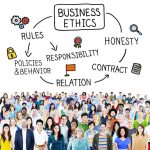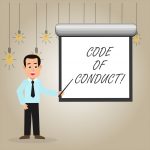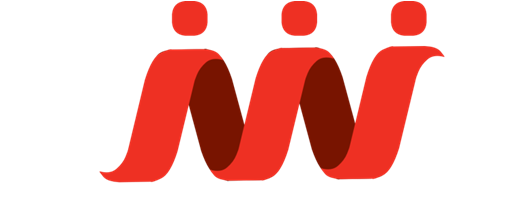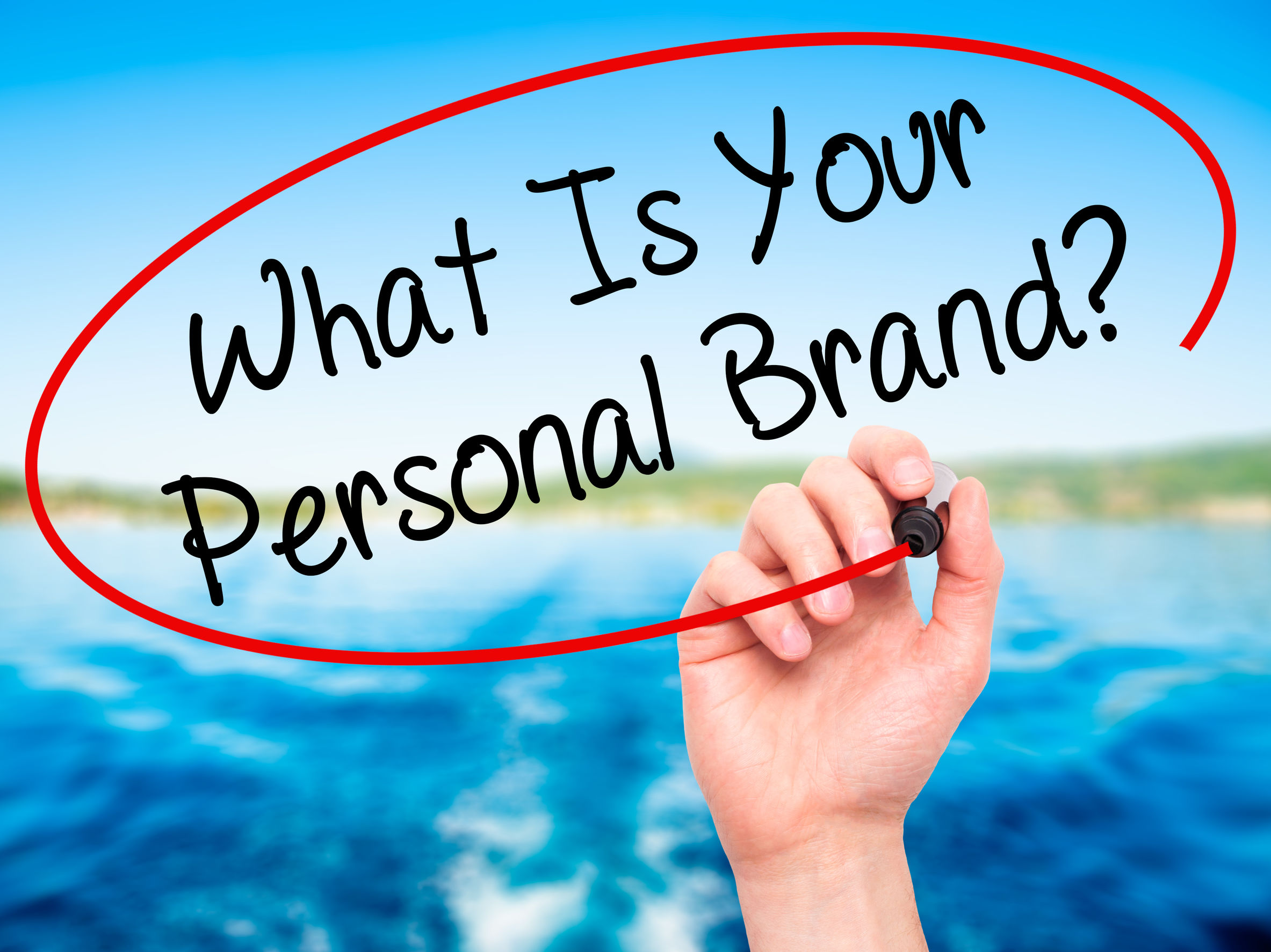Times have changed, and ethical issues are a daily part of headline news in business, politics, and social life. Therefore, I believe a course on ethics should be taught in offices around the globe and be a part of any degree program. In business, today people at every level are confronted with more and more pressures and challenges. What you say does matter, but it’s what you do that really counts. When you cross ethical lines, the reputation and credibility of you and your company can be ruined.
The lines become blurred between your personal brand and the company’s brand. Therefore, it is critical to your success and your well-being that you maintain a professional demeanor and adhere to a code of ethics. Remember, a loss of integrity would probably be with you forever. So, it is important to be prepared, the wrong decision could cost you personally and professionally. It may also cost you and your company legally.
What is the Right Thing?
 It is said that ethics is doing the right thing while no one is looking. But what is the right thing? Let’s begin at the highest level and define the difference between morals, ethics, and laws. It’s important to understand their interrelatedness as well as their definition. Morals are personal decisions that have personal consequences. They are drawn from what your conscience believes to be right or wrong rather than from a law. Whereas ethics is a system of moral principles that affect how people make decisions and lead their lives. Ethics provides a framework or moral map for behavior. Laws are enacted by a government’s legal system and they are linked to specific punishments.
It is said that ethics is doing the right thing while no one is looking. But what is the right thing? Let’s begin at the highest level and define the difference between morals, ethics, and laws. It’s important to understand their interrelatedness as well as their definition. Morals are personal decisions that have personal consequences. They are drawn from what your conscience believes to be right or wrong rather than from a law. Whereas ethics is a system of moral principles that affect how people make decisions and lead their lives. Ethics provides a framework or moral map for behavior. Laws are enacted by a government’s legal system and they are linked to specific punishments.
 Why Define The Difference?
Why Define The Difference?
We’re talking about ethics today, but you can see how they are related and create gray areas when I provide a little scenario. I visited the Scottish museum in Sydney, Australia while there for a sales event. As we all know stealing is a crime. But what would you do if your children were starving and their very lives depended upon getting some food to nourish them? Should you be arrested and sent half-way around the world for stealing a loaf of bread? Ship’s documents in the museum verify that is just what happened to many people in the 1700s and 1800s.
Obstacles to Ethical Decisions
 We all face pressures from family, friends, or business authority figures. In both personal and business situations there may be a lack of established code or rules of conduct. Therefore, it makes it difficult to know what is perceived as right and by whose standards is it right. Business pressure to meet business metrics, whether it is sales performance, enrollments, or improving quality scores is applied at different levels. Once you achieve a desired quantity or quality, the expectation is increased. Sometimes the management applies the expectation and sometimes we apply it to ourselves
We all face pressures from family, friends, or business authority figures. In both personal and business situations there may be a lack of established code or rules of conduct. Therefore, it makes it difficult to know what is perceived as right and by whose standards is it right. Business pressure to meet business metrics, whether it is sales performance, enrollments, or improving quality scores is applied at different levels. Once you achieve a desired quantity or quality, the expectation is increased. Sometimes the management applies the expectation and sometimes we apply it to ourselves
List of Common Obstacles
Here are some common obstacles we face in ethical decision making:
The ends justify the means. This reasoning makes non-ethical behavior or goals ethical in the mind of the person making a decision in an unethical or gray area.
It is just part of my job. People exhibiting this behavior and thinking separate them into personal and job-related categories. This thinking allows decent people to make business decisions that they would never make in their personal life.
I was doing it for you or to protect you: In this case, people value caring over honesty and respect. People who make this choice rationalize telling “white lies.”
I deserve it: This rationale is usually exhibited by people who feel cheated or under-compensated. They rationalize to themselves that it doesn’t hurt anyone.
Loss of objectivity: People who make decisions without proper objectivity, don’t consider that friendship, and favors affect judgment and a sense of obligation.
Living in fear of losing a job: Some people live in fear of losing their job if they don’t follow the demands of authority and perform unethical acts.
Lack of time to uncover complete information: Some people may yield to time pressures and make an incomplete and less than an optimal decision
Guidelines
 Although we hear quite a lot about the increasing need for work/life balance, it doesn’t mean completely separating the two. In fact, it means quite the opposite. Honesty, integrity, creativity, respect, teamwork, kindness, fairness, forgiveness, gratitude, hope, and humility apply in both environments.
Although we hear quite a lot about the increasing need for work/life balance, it doesn’t mean completely separating the two. In fact, it means quite the opposite. Honesty, integrity, creativity, respect, teamwork, kindness, fairness, forgiveness, gratitude, hope, and humility apply in both environments.
What can you do to help you make ethical decisions in your personal and professional life? Here are some guidelines.
- Take a minute and consider your personal professional brand. How do you represent, both yourself and your company? What you do and what you say will help define your brand.
- What values define you and/or your organization?
- Remember that social media makes it easy for others to document and share indiscretions in any area of your life. Be aware what you do in one area can affect the other area.
- Consider who will be affected by your actions.
- Think creatively. Creativity helps you solve problems in new ways. It also helps you inspire others.
- What courses of action are possible and what are the possible impacts?
- Find people to collaborate with or resources to help you decide. Teamwork fosters connectedness and shared purpose. It also provides strength and help.
- How would the people or organization grow through the decision and associated processes?
- Choose actions and activities that enable the people involved to flourish.
- Think long-term not short-term. Are you setting a precedent?
Next Steps
If you do not have a personal code of conduct, take a minute to create a vision statement of who you want to be and what kind of life do you want to create for yourself. Next, list your personal values and then write a list of ethical behaviors that will allow you to create the life you envisioned.
Once your personal values and ethical statements are in place, write them for your company. If you are an employee, evaluate how your values and those of the company match. If the company does not have matching values or any stated values, work with management to create an ethical environment. If that is not possible, consider whether the company is a match for you.
Want proof that you and your company will flourish if you function ethically?
I have multiple stories that I can share. Here is one to prove the point.
 In the 1980s a researcher who worked for Merck Pharmaceuticals created a plan to develop a human version of a drug developed to treat animals. The drug could cure a painful parasitic condition that leads to blindness. At the time, there were 18 million people in Africa and Latin America affected by the disease, and there would be more in the future. These people were among the poorest in the world and would never be able to pay for the drug once created.
In the 1980s a researcher who worked for Merck Pharmaceuticals created a plan to develop a human version of a drug developed to treat animals. The drug could cure a painful parasitic condition that leads to blindness. At the time, there were 18 million people in Africa and Latin America affected by the disease, and there would be more in the future. These people were among the poorest in the world and would never be able to pay for the drug once created.
Merck determined that it would cost 300 million to develop, test, and get the drug ready for human use. There was no realistic prospect of Merck recouping that investment. They made the drug anyway, and in 1987 worked with the World Health Organization to distribute it across the world free of charge. More than thirty years later, the results of this collaborative action speak for themselves. Because of this drug and its distribution, tens of millions of people can see and are pain-free. These people are leading better and healthier lives.
Merck was following the principle that since they were uniquely situated to profoundly reduce suffering in the world, and that was, after all their brand and business, they would take responsibility for this problem.
In the short term, it was a financial loss for Merck, however, in the long term, it created incredibly goodwill for the company, opened new markets to its other drugs, and greatly increased employee engagement. Merck employees were proud to be a part of making a difference in the world.
Uncover your strengths and develop your character. As a result, you will raise your sense of well-being and your personal and professional life will grow as well.
Here is the link to the Merck story online. https://www.merck.com/stories/mectiza
We Can Be Your Guide And Mentor
We are here with you in this tough time. You can learn how to improve your character and share your stories. Visit our website @ www.salestraining solutions.com for more hints, tips, and stories. There are templates under Freebies www.salestrainingsolutions.com./freebies. You can also join our bi-monthly newsletter to get our Free eBook on Storytelling: The Secret to Sales Success. We’ve filled our site with tools, tips, and resources to help you achieve success. We are also available by email or phone for consultation or training.,

